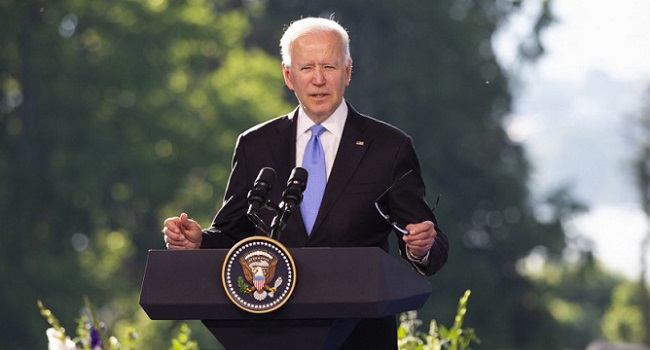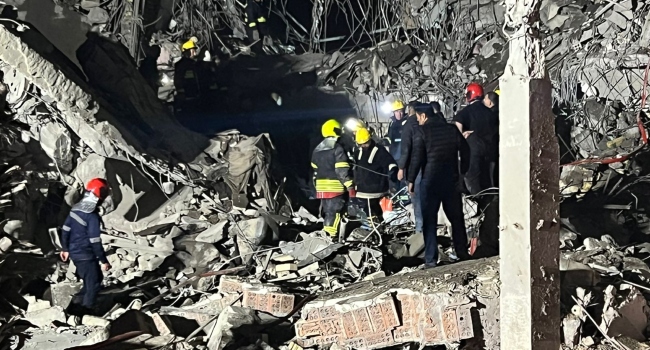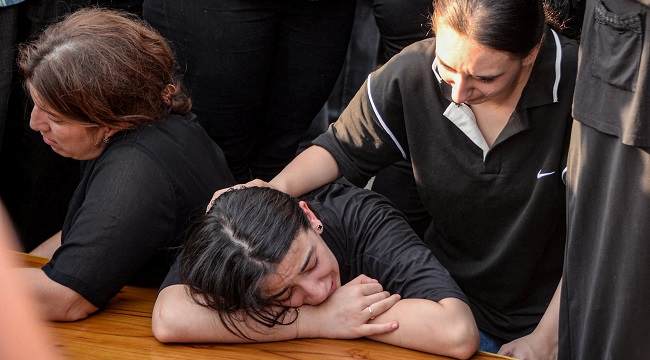
President Joe Biden opened talks with Iraqi Prime Minister Mustafa al-Kadhemi on Monday saying relations were in a “new phase” that would include the end of US combat operations in the country.
With Kadhemi at his side in the White House, Biden said that the US is “committed to our security cooperation” and will “to continue to train, to assist, to help, to deal with ISIS (Islamic State) as it arises.”
“But we’re not going to be, at the end of the year, in a combat mission,” he said.
Biden also stressed US support for elections in October in Iraq, saying Washington is working closely with Baghdad, the Gulf Cooperation Council and the United Nations to ensure the elections are fair.
Kadhemi said the US and Iraq have a “strategic partnership.”
“America, they help Iraq. Together we fight, fight and defeat ISIS,” he said.
“Today, our relation is stronger than ever — our partnership in the economy, the environment, health, education, culture and more.”
Biden is currently also overseeing the United States’ withdrawal from Afghanistan after 20 years of war, with the Taliban on the offensive amid fears they could even topple the Kabul government.
Political support
Biden’s comments confirmed his readinesses to further limit US involvement in Iraq, but without removing the remaining 2,500 troops in the country, 18 years after the United States invaded to remove strongman Saddam Hussein.
The move could lend political support to Kadhemi, in power for little over a year and under pressure from Iran-allied political factions to push US troops from his country.
The two leaders’ meeting came after weeks of preparations which included discussions on support for fighting Covid-19, aiding the Iraqi private sector and cooperation on climate change.
Ahead of the meeting a senior US official who would not be identified praised Kadhemi for being pragmatic and “a problem solver rather than someone who tries to use problems for his own political interests.”
The main concern from Washington is to lend enough support to Iraqi security forces to keep up the fight against the remnants of the Islamic State group — while also keeping a damper on Iran’s influence in Iraq.
Since last year the principal role of the remaining US troops in Iraq has been to train, advise and support their Iraqi counterparts to battle Islamic State.
But Biden’s statement made clear that their involvement in actual fighting Islamic State would end.
“Iraq has requested, and we very much agree, that they need continued training, support with logistics, intelligence, advisory capacity building — all of which will continue,” the US official said.
READ ALSO: Fans Urged To Stay Away From Olympic Marathon Over COVID-19 Fears
October elections

“We support strengthening Iraq’s democracy and we’re anxious to make sure the election goes forward in October,” he said.
In the vote Kadhemi is hoping to regain ground with powerful pro-Iran political factions, which are overtly hostile to the US presence.
He was expected to persuade Washington to ease some sanctions relating to Iran, to help Iraq honor crucial transactions with its neighbor and tackle power shortages.
Ramzy Mardini, an Iraq specialist at the University of Chicago’s Pearson Institute, said the meeting that it could be cosmetically “shaped” to help the Iraqi premier alleviate domestic pressures.
“But the reality on the ground will reflect the status quo and an enduring US presence.” said Mardini.
Remaining, however, has its risks.
“If there is no significant announcement on the withdrawal of troops, I fear that the pro-Iran groups may… increase attacks on the US forces,” Iraqi researcher Sajad Jiyad told AFP.
The Iraqi Resistance Coordination Committee, a group of militia factions, threatened to continue the attacks unless the United States withdraws all its forces and ends the “occupation.”
AFP




